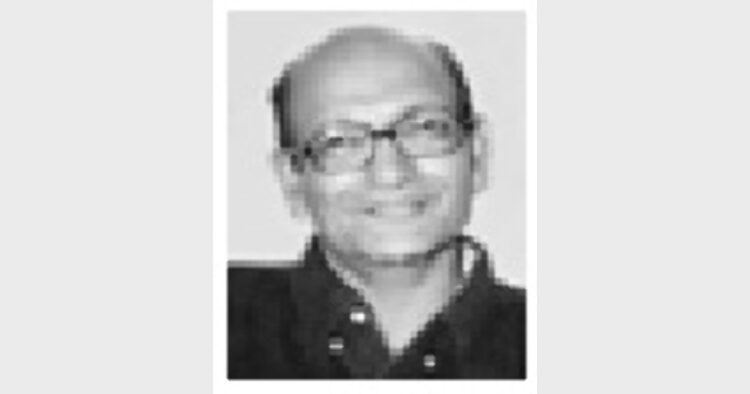 AT the root of widespread corruption lies the procedure of appointment of constitutional officials who have the responsibility of controlling corruption of the government. That corrupt individuals get elected is nothing new. Hitler and Sukarno were elected by the people. The voter, it seems, does not have confidence that electing honest persons will actually usher in good governance just as a fakir travelling with a group of thieves in a train is scarcely able to stop their thievery. We should brace ourselves to live with corrupt politicians.
AT the root of widespread corruption lies the procedure of appointment of constitutional officials who have the responsibility of controlling corruption of the government. That corrupt individuals get elected is nothing new. Hitler and Sukarno were elected by the people. The voter, it seems, does not have confidence that electing honest persons will actually usher in good governance just as a fakir travelling with a group of thieves in a train is scarcely able to stop their thievery. We should brace ourselves to live with corrupt politicians.
The role of constitutional officials such as the President of India, Chief Justice of India (CJI), Chief Election Commissioner (CEC), Central Vigilance Commissioner (CVC) and Comptroller and Auditor General of India (CAG) becomes much important in this situation. These officials have adequate powers to control corruption of the government but, often, they do not use the powers effectively. Instead they use their powers for personal gains in connivance with the government.
This leads to the government becoming free of checks and corruption becomes widespread. Control of corruption requires that these officials do their work seriously and not be afraid of taking action against corrupt politicians.
The record of these officials does not inspire much confidence, however. Chief Justice Chandrachud had given judgment supporting the Emergency, which, if I recall correctly, he later regretted. Senior Advocate Shanti Bhushan of Supreme Court has given a list of eight CJIs whom he has called clearly corrupt. Recently PJ Thomas had to resign from the post of CVC due to pendency of a case of corruption against him. These officials, who had the responsibility of controlling corruption, have become corrupt themselves.
The problem is rooted in the appointment of these officials. The ruling party appoints them. The CJI is appointed by the President on advice of the Prime Minister. Traditionally the senior most judge is appointed but there have been exceptions. Indira Gandhi had superseded three senior most judges to appoint one of her choice. The Prime Minister can recommend appointment of a corrupt judge as CJI.
The President is elected by the MPs and MLAs belonging to all political parties but again the person selected has almost always been at the whims of the party in power and the Opposition is mostly rendered irrelevant. The results have not been very encouraging. CEC and CAG are also appointed by the President on the advice of the Prime Minister. Unlike the CJI, however, there is no tradition of appointing the senior most person here. The Prime Minister can recommend the name of any person that he thinks is suitable for the post. The procedure of appointing the CVC is a bit different. A collegium of the Prime Minister, Home Minister and Leader of Opposition in the Lok Sabha recommends the name to the President.PJ Thomas was recommended for appointment by this collegium. According to leader of Opposition Sushma Swaraj, the fact that a case of corruption was pending against Thomas was not disclosed to the collegium. She had nevertheless given a dissent for his appointment. The dissent was not given importance by the Government. Thomas had to resign when the matter reached the Supreme Court. This indicates that participation of the Opposition in the process of appointment does not make much difference though it remains a welcome step.
The Opposition is generally kept into the loop in such appointments in the developed countries. In the US, the President appoints the six ECs to the Federal Election Commission which are confirmed by the Senate. In the UK, the 10 ECs are directly accountable to the Parliament. A Parliamentary Parties Panel comprising of representatives of all the political parties keeps a check on the activities of the Election Commission. The Australian Election Commission is headed by a serving or retired judge of the Federal Court as its chairperson. The Commission is placed under the jurisdiction of the government headed by a Special Minister of State. Elections in Canada are done by passing a resolution in the House of Commons wherein all the political parties participate in the process. This participation of the Opposition in appointments seems to have delivered better governance in these countries. However, there is a crucial difference. Incomes of these countries are much higher and ability of those people to bear the consequences of corruption is greater. Everyday life of the people is not much affected by corruption. There is also a question of tradition. Indian tradition appears to be more individual-centric in comparison to the Western tradition which appears to be more institution-centric. Therefore, participation of Opposition in the appointment process does not appear to deliver the same benefits as seen in the case of CVC Thomas.
There is limited chance of improvement till the appointments are primarily in the domain of the ruling party. There is a need to explore alternative modes of appointing these officials.
The President can be elected by universal suffrage by all voters of the country as is the practice in France. Then the political parties will not have a direct power to appoint a person of their choice. They will have to take the people into confidence. The President will draw his authority from the people, not from the party in power, and will have the moral authority to say no to the requests made by the government. It is difficult for a President to control corruption of a party which has appointed him to the office.














Comments